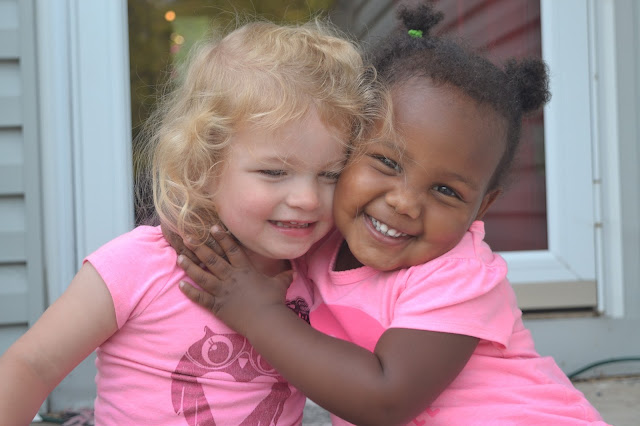word of the day: lie \ˈlī\ to make an untrue statement with intent to deceive; to be in a helpless or defenseless state
“You’re just one person. What difference can you make?”
So, Jen Hatmaker.
When we moved to Ohio, I opened up 7: An Experimental Mutiny Against Excess. It had been sitting on the back pages of my Kindle for a couple of years, and my friend, Jess, told me I needed to read it. So I did (I try to do everything Jess does. She’s a key member of my council). And it wrecked me. Wrecked me, you guys.
The premise is simple. Hatmaker took seven areas of excess: food, clothing, shopping, waste, possessions, media, and stress. She spent one month on each area and reduced her life down to seven things (although each month “reduced” down differently). For instance, during the food month she ate the same seven foods, during the clothes month she rotated the same seven articles of clothing, and during the stress month she paused to pray seven times a day.
I opened the book thinking I would change as a consumer: buy less, waste less, give more. And, while that did happen in ways (I make homemade croutons with stale bread and recycle now, for goodness sakes), I closed the book more cognizant of my need to serve the least. To get past the excess in my life and to bring Jesus to people.
enter this lie.
Loving people requires action. In my experience, people who need Jesus don’t just flock to my house. They don’t just turn up on my front porch and ask for homemade cookies (although I’d be lying if I told you I hadn’t prayed for that a time or two).
So, Satan thwarts this mission if he can convince me that I can’t make a difference anyway.
I have two counteracting perspectives to this lie. Hatmaker helped me come to the first and she did it while talking about spending of all things. In her quest to be a better steward of her money, she was discouraged that her “race against the machine [was] silly.” Translation: You’re just one person. What difference can you make?
Her response?
When I look at our earth’s resources and all the humans it needs to sustain, I have to adopt an “as for me and my house” perspective on responsibility. Stewardship is like that. I won’t answer for the way another Christian mismanaged money. I won’t be charged with another person’s irresponsible consumption. Nor will I get credit for how another faith community shared or sacrificed luxuries for the marginalized.
I’ll answer for my choices.
And I’ll answer for mine, too. Someday, I’m going to stand before God and make an account for the way I lived my life, and I’d like to be able to say that I gave it my best shot. That I tried to love people well. That I didn’t just wait for them to come to me.
I might not change the world in big ways. I probably won’t end world hunger or find a home for every orphan across the world. But if I step off my front porch, I think I can at least make small differences. And I’ll gladly answer for those.
My second perspective, though, comes from one of my other favorite writers, Bob Goff. He wrote the book Love Does and champions the idea that love requires action and that from those actions can come great things.
Goff took this principle and (to put it far too succinctly than it deserves), allowed his children to meet and host foreign dignitaries in their home for sleepovers, became the American consul to Uganda (rescuing hundreds of kids in the process), and started a tradition in which their entire neighborhood puts on a New Year’s Day parade complete with a grand marshal and a 100% participation rate.
I like what Donald Miller (now it’s a trifecta of authors) says about Goff in his book A Million Miles in a Thousand Years:
I asked Bob what was the key to living such a great story, and Bob seemed uncomfortable with the idea he was anything special. But he wanted to answer my question, so he thought about it and said he didn’t think we should be afraid to embrace whimsy. I asked him what he meant by whimsy, and he struggled to define it. He said it’s that nagging idea that life could be magical; it could be special if we were only willing to take a few risks (167).
I want whimsy.
I want to believe that big things can happen even if I don’t expect them to. And that loving people is a choice that will never fail.
Anyway, people like homemade banana bread too much for it to fail. And, thanks to Jen Hatmaker, I’ve got an excess of baked goods made with overripe bananas.
 |
| Lily likes to help me bake. |














